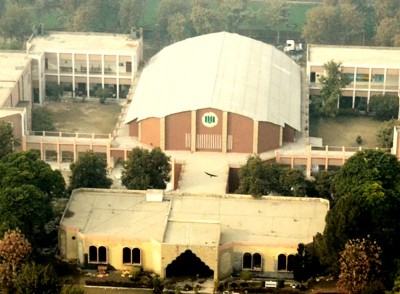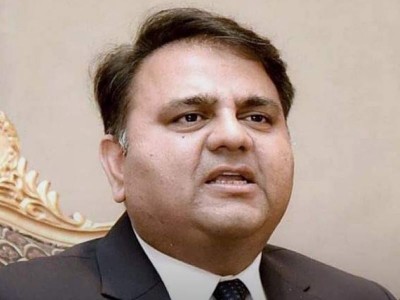Pakistan: Organized Islamist groups targeting minorities
Aug 23, 2023, at 04:32 am
With organised Islamist groups pushing it, violence against religious minorities in Pakistan is increasingly moving beyond the local and spontaneous anger of the Muslims, media reports and probes by human rights bodies indicate.
Feb 06, 2023, at 09:16 pm
We did not need to make Mujahideen. We created Mujahideen and then they became terrorists - Federal Interior Minister Rana Sanaullah while addressing the Senate on January 31, 2023.
Balochistan rises in revolt, reminds Pakistan of its Bangladesh loss
Dec 30, 2022, at 06:28 am
Fifty-one years on, Pakistan gets sharp reminders of its Bangladesh loss as yet another province, Balochistan, rises in revolt.
Dec 11, 2022, at 12:34 am
Last week marked the formal taking charge of Pakistan’s 17th Chief of Army Staff (COAS), four-star General Asim Munir, who replaced the now-retired Qamar Javed Bajwa as head of the Pakistani Army. Munir has become COAS at a time when Pakistan faces various political challenges, ranging from the escalating insurgency of the Pakistani Taliban (Tehreek-e-Taliban Pakistan - TTP) along the border with Afghanistan, continued loan negotiations with the International Monetary Fund (IMF), economic downturn, the political standoff between the Sharif government and Imran Khan-led opposition, and the prevailing humanitarian response issues linked to the floods of the summer.
Aug 15, 2022, at 09:35 pm
On August 8, 2022, four soldiers were killed in a suicide blast targeting a military convoy in the Mir Ali area of North Waziristan District in Khyber Pakhtunkhwa (KP). Two days later, on August 10, Ittehad Musallah Islami Mujahideen (IMAM)’s spokesperson Abu Basheer Waziristani claimed responsibility for the attack.
Jun 14, 2022, at 02:15 pm
The Tehreek-e-Taliban Pakistan has declared an indefinite ceasefire. A TTP statement issued on June 2 reads,
May 31, 2022, at 06:47 pm
On May 23, 2022, two soldiers were killed when terrorists attacked Security Forces (SFs) in the Mir Ali area of North Waziristan District in Khyber Pakhtunkhwa (KP).
Dec 18, 2021, at 09:13 pm
Islamabad: The two major setbacks that Pakistan suffered on 16 December – first the country’s inglorious dismemberment and the birth of the sovereign Bangladesh in 1971, and then the grisly and repugnant massacre of over 130 children of an Army-run school in Peshawar by the Tehreek-e-Taliban Pakistan (TTP) in 2014 – both trace their roots to the oppressive, intrinsically flawed, and largely self-serving policies pursued by the country’s military.
Pak minister blames India after Kiwis abort tour over security threat
Sep 24, 2021, at 08:14 am
Delhi/IBNS: True to its habit of pushing baseless propaganda against New Delhi instead of taking credible and verifiable actions against terrorism on its soil, a Pakistani lawmaker has said a threatening email emanating from India prompted the New Zealand cricket team to abruptly cancel its tour of the country.
Jul 24, 2018, at 03:17 pm
Former Provincial Minister for Agriculture and livestock and Pakistan Tehreek-e-Insaf (PTI) candidate for Province Khyber Paktunkhwa-99 (PK-99) Ikramullah Khan Gandapur was killed along with his driver and six persons, including two Police guards, seriously injured, in a suicide attack near his hometown Kulachi in Dera Ismail Khan District of Khyber Pakhtunkhwa (KP) on July 22, 2018. The head of the bomb disposal unit (BDU) in Dera Ismail Khan, Inayat Tiger, said that eight kilogrammes of explosives had been packed in the suicide vest when it was detonated. Tehreek-e-Taliban Pakistan (TTP) ‘spokesperson’, Muhammad Khurasani, claimed the responsibility and termed the attack “an act of vengeance for their fallen comrades.”
Jul 17, 2018, at 03:29 pm
On July 13, 2018, at least 149 civilians were killed and 186 others injured when a suicide bomber blew himself up targeting a political rally of the Balochistan Awami Party (BAP) at Dringarh village in Mastung District of Balochistan. According to the bomb disposal squad (BDS), up to 15 kilograms of explosive material was used in the incident. The dead included Siraj Raisani, the BAP candidate from National Assembly seat Province Balochistan–35 (PB-35, Mastung). Siraj’s elder brother, Nawab Aslam Raisani, was the Chief Minister of Balochistan Province between 2008 and 2013. Most of the other victims were residents of Kanak and Dringarh areas, who had invited Raisani to announce their support for him. The Islamic State (IS) and the ‘Ghazi force Lal Masjid’ wing of the Tehreek-i-Taliban Pakistan (TTP) separately claimed responsibility for the attack.
Sep 22, 2015, at 06:49 pm
Research Associate, Institute for Conflict Management At least 43 persons, including 14 terrorists, were killed as the Pakistan Air Force (PAF) base at Inqalab Road in Badaber area of Peshawar, the provincial capital of Khyber Pakhtunkhwa, came under attack by the Tehreek-e-Taliban Pakistan (TTP) in the early morning of September 18, 2015. The Badaber camp used to be an operational Air Force base, but is now a PAF training centre.














